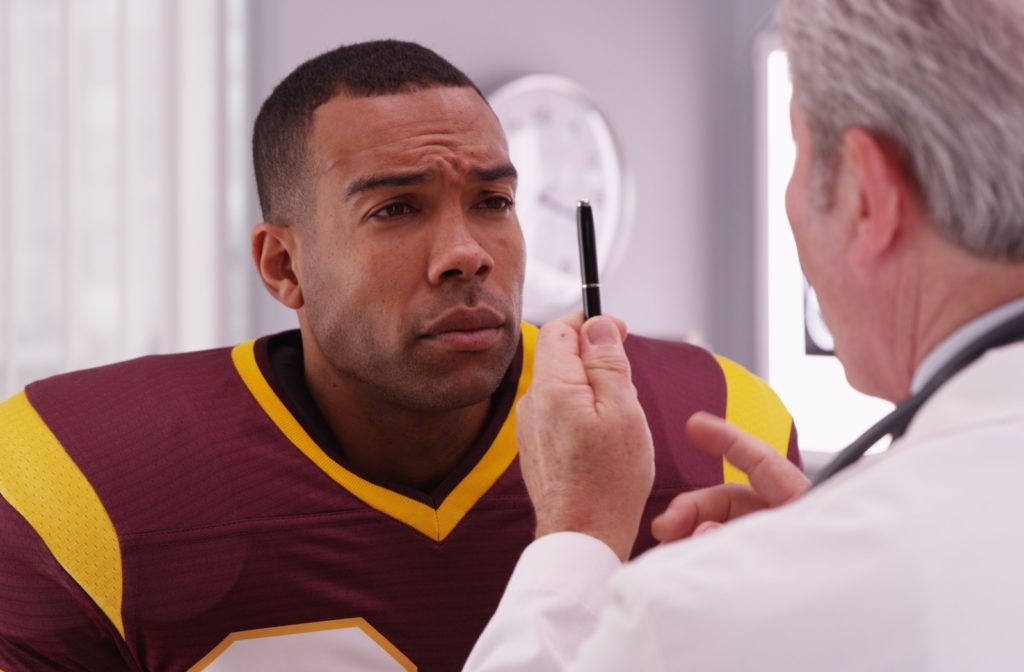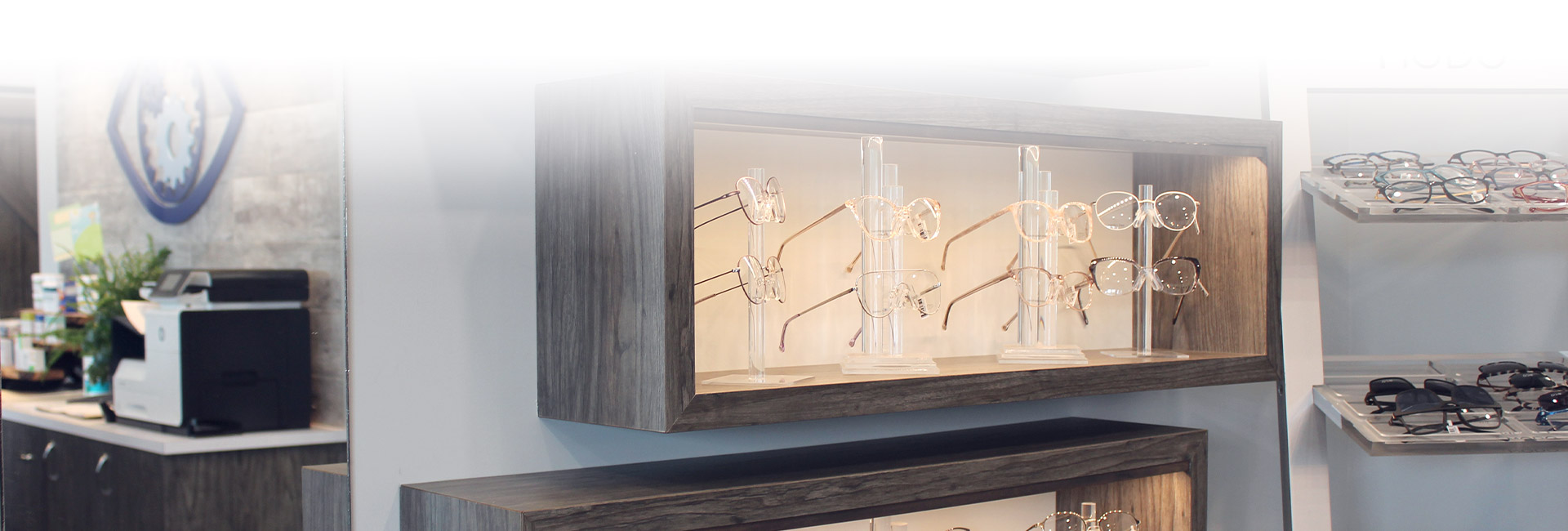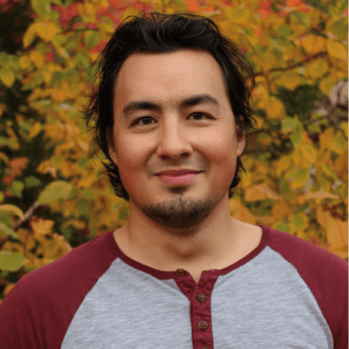Recovering from a concussion often brings unexpected challenges, and for many, lingering vision problems can be one of the most frustrating hurdles to overcome. These visual disturbances can make everyday activities, like reading, working, or even driving, difficult and exhausting.
Vision problems after a concussion can last for weeks, months, or longer, depending on the severity of the injury and the treatment approach. Most vision problems from concussions are temporary, and working with a professional as early as possible can make a significant difference in minimizing long-term damage.
Concussions & Your Vision
A concussion is a traumatic brain injury that can disrupt normal brain function. It’s often caused by a blow or jolt to the head that causes the brain to move back and forth inside the skull. Because the brain plays a central role in processing vision, it’s not uncommon for concussions to cause issues with vision, including:
- Light sensitivity
- Blurry vision
- Double vision
- Difficulty with eye-tracking
- Loss of eye alignment
- Trouble focusing on different distances
- Spatial disorientation
- Lack of balance
- Reduced depth perception
Studies show that about 90% of patients with traumatic brain injuries suffer from visual disturbance. If left untreated, these problems will continue to impact how you think and function. Tasks like reading, focusing, or getting around familiar places can become overwhelming.
Diagnosing and treating these issues early helps you take control and minimize their effect on your daily life. On the other hand, ignoring the signs can make recovery harder and stretch out your symptoms.
Can Visual Dysfunction Be Permanent?
Vision problems caused by a concussion are generally temporary and improve with the right treatment. However, there is a possibility of permanent damage in some cases. Most disturbances typically resolve within a few weeks to months, especially with therapies like neuro-visual rehabilitation.
Whether or not permanent damage occurs depends on the severity of the injury, how quickly treatment begins, and individual factors like overall health and age. Children and adolescents take around 4 weeks to heal on average, while older adults may take a lot longer.
Timely medical intervention and consistent follow-ups are key to recovery and reducing the likelihood of permanent effects.
Assessing Vision After a Concussion
Concussions affect everyone differently. To understand how your vision has been affected, you’ll need an acquired brain injury evaluation designed specifically to uncover visual dysfunctions following a traumatic brain injury.
The assessment focuses on key visual areas, including:
- Eye teaming (binocular vision): Your eyes must work together seamlessly to form a single clear image. A concussion can disrupt binocular vision, leading to eyestrain and double vision.
- Focusing challenges: Adjusting focus at different distances can become slow or difficult, making tasks like reading or using a computer frustrating.
- Light sensitivity: Bright lights might suddenly feel unbearable, making even indoor spaces uncomfortable.
- Visual processing: Your brain’s ability to quickly and accurately interpret visual information could become slower or less reliable.
A thorough evaluation typically takes about two hours, although it may be broken into multiple sessions. The final result includes a full report and consultation with your optometrist to guide the next steps in your recovery.

The Road to Recovery With Vision Therapy
If you’re dealing with vision problems after a concussion, vision therapy can be a helpful, noninvasive solution.
Vision therapy is a supervised program designed to train your brain and eyes to work better together. Through weekly sessions tailored to your specific needs, you can enhance your visual skills and improve the connection between your brain and eyes. To maintain these improvements, you’ll also receive exercises to practice between sessions, helping to bolster your visual system so it stays strong and functions as it should.
Here’s how vision therapy can support your recovery:
- Customizable treatments: Each therapy plan is designed to address the specific visual skills affected. Whether it’s improving focus or easing visual fatigue, treatment is tailored just for you.
- Quality of life improvements: Therapy can make everyday tasks, like reading or following a conversation, less daunting and more manageable. Regular sessions can help improve your ability to engage with life’s daily activities.
- Professional guidance: Recovery can feel like an uphill battle, but you’re not doing it alone. Our experienced vision therapy team supports and encourages you every step of the way, always prioritizing your comfort and progress.
Vision therapy is a collaboration that seeks to enhance both your visual abilities and your confidence. While recovery timelines vary, a dedicated and structured approach can make a significant difference.
See the Path Ahead with Confidence
Recovering from vision problems after a concussion is possible. While recovery takes time, a thorough evaluation and a personalized treatment plan from Beyond 20/20 Optometry can help you get back to feeling like yourself. You have the strength to succeed, but you can’t—and don’t have to—do it on your own.
Your recovery is important to you and to those who care about you. Our team is here to help you regain clarity and confidence, creating a plan tailored to your needs and guiding you every step of the way. Book your appointment today and take the first step toward better vision. Don’t wait—this is your chance to move forward.




